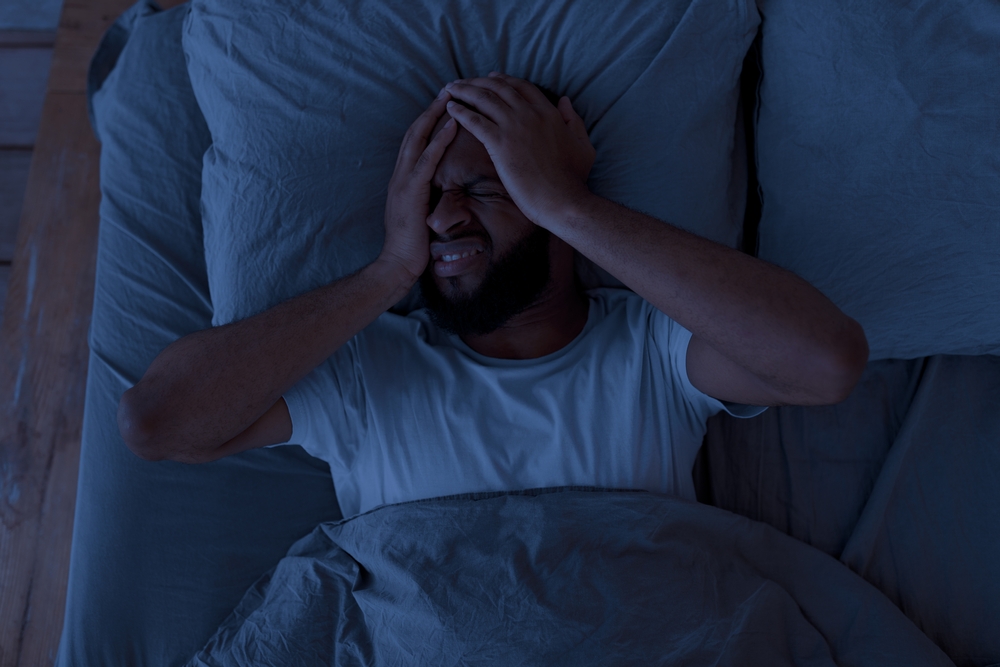Getting a good night’s sleep seems simple enough, but for 70 million Americans struggling with chronic sleep issues, it’s anything but easy. While many turn to sleep aids for relief, groundbreaking research suggests these medications might be doing more harm than good when it comes to your brain health. With approximately 39% of adults over 45 not getting the recommended seven hours of sleep each night, understanding the impact of sleep medications has never been more crucial.
What’s really happening in your sleeping brain
Your brain doesn’t just rest during sleep, it actually performs crucial maintenance work. Scientists have discovered that during sleep, your brain activates its cleanup crew, known as the glymphatic system. This system works like a sophisticated washing machine, clearing out waste products that could lead to cognitive decline and dementia. The catch? New research suggests common sleep medications might be interrupting this essential process. During normal sleep, your brain goes through different stages, each playing a vital role in maintaining cognitive health. The deep sleep stage, in particular, is when most of this cleaning work takes place.
The science behind the warning
Researchers studied the effects of zolpidem, commonly known as Ambien, on the brain’s cleaning process. What they found was concerning, the medication appears to disrupt the synchronized brain waves necessary for proper waste removal. Think of it like trying to clean your house while someone keeps rearranging the furniture, making the whole process less effective. The study used advanced imaging techniques to observe brain activity during sleep, revealing that these medications might be compromising one of sleep’s most important functions.
Why your brain’s janitor needs help
During healthy sleep, your brain releases a chemical called norepinephrine in coordinated waves. These waves help control blood flow and support the brain’s cleaning process. The study revealed that sleep aids might stop these waves, potentially leaving toxic waste products to accumulate in your brain over time. This discovery is particularly concerning because these waste products include proteins associated with neurodegenerative diseases like Alzheimer’s and Parkinson’s. The synchronized oscillations during non-REM sleep are crucial for maintaining brain health, and anything that disrupts this process could have long-term consequences.
The real cost of artificial sleep
While sleep medications can provide temporary relief from insomnia, the potential long-term effects on brain health raise serious questions about their regular use. Research suggests that the artificial sleep induced by these medications might not provide the same restorative benefits as natural sleep. This is particularly troubling given that many people rely on these medications for extended periods, potentially compromising their brain’s natural cleaning mechanisms night after night.
Medical professionals are divided on these findings. A doctor who worked on the study, suggests using sleep medications only as a last resort and for short periods. However, another doctor points out that for many patients, especially older adults, the benefits of getting any sleep might outweigh potential risks. The debate highlights the complex nature of sleep health and the need for personalized approaches to treatment.
The risk factors you need to know
Not all sleep aids may affect the brain in the same way, but the study raises important questions about their long-term use. Factors that might increase your risk include:
The frequency and duration of sleep aid use, with regular, long-term use potentially posing greater risks. Your age and overall brain health, as older adults might be more vulnerable to cognitive effects. The presence of other risk factors for cognitive decline, which could compound the potential impacts of sleep medications.
This research raises important questions about how we treat sleep problems. While sleep aids can provide quick relief, they might be compromising the very benefits we’re seeking from sleep. A doctor reminds us that while the study is intriguing, it was conducted on mice, and more research is needed to understand the full impact on human brain health. However, the findings align with growing evidence suggesting that natural sleep is crucial for maintaining cognitive function.
Natural alternatives worth trying
Before turning to sleep aids, consider exploring natural alternatives that can help improve your sleep quality. Regular exercise, particularly in the morning or early afternoon, can help regulate your sleep cycle. Creating a consistent sleep schedule and bedtime routine signals to your body when it’s time to wind down. Managing stress through techniques like meditation or deep breathing can also help prepare your mind for rest.
Your sleeping environment plays a crucial role in the quality of your rest. Keep your bedroom cool, dark, and quiet. Consider using blackout curtains or white noise machines if needed. Remove electronic devices that emit blue light, which can interfere with your natural sleep-wake cycle. These simple changes can significantly improve your sleep quality without relying on medications.
The role of diet in sleep health
What you eat and drink can significantly impact your sleep quality. Avoid caffeine in the afternoon and evening, and be mindful of alcohol consumption, which can disrupt sleep patterns. Consider incorporating sleep-promoting foods into your evening routine, such as those rich in magnesium or tryptophan. Timing your meals properly can also help optimize your sleep cycle.
If you’re struggling with chronic sleep issues, working with a sleep specialist can help identify underlying causes and develop a comprehensive treatment plan. They can help you explore various options, from cognitive behavioral therapy for insomnia to lifestyle modifications, before turning to sleep medications.
Finding better ways to rest
The good news is that you don’t have to choose between poor sleep and potentially harmful medications. Sleep experts recommend focusing on natural solutions first. Creating a consistent bedtime routine, managing stress, and making your bedroom more sleep-friendly can help you achieve the restorative sleep your brain needs without compromising its essential maintenance work.
Remember, quality sleep isn’t just about being unconscious for eight hours, it’s about giving your brain the conditions it needs to perform all its vital functions. While sleep aids might seem like an easy fix, protecting your brain’s natural cleaning system could be crucial for maintaining long-term cognitive health. If you’re struggling with sleep, talk to your healthcare provider about developing a comprehensive sleep strategy that prioritizes both immediate relief and long-term brain health.
By taking a holistic approach to sleep health and understanding the potential risks associated with sleep medications, you can make informed decisions about your sleep care. The goal isn’t just to get more sleep, but to ensure that the sleep you get is truly restorative and supportive of your long-term brain health.

















